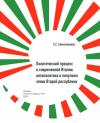Building Bridges Through Informed Dialogue
Institute of Peace and Diplomacy (IPD)
Building Bridges Through Informed Dialogue
Institute of Peace and Diplomacy (IPD) is an independent, non-governmental and not-for-profit think tank that aims to provide strength to global peace through dialogue and diplomacy by sharing knowledge, research, analysis and policy development in the areas of, peace-diplomacy, peace-building, conflict resolution, conflict transformation and conflict management. The main objective is to provide neutral space to stakeholders to share ideas, exchange views, experiences, understanding of the issues through innovative research and practices worldwide. IPD aims at connecting diverse groups and disciplines including experts, researchers, academicians, non-government organizations from across the globe working in conflict zones with the sole purpose of creating sustainable peace in countries and communities facing traditional and nontraditional security threats. Areas of Research: Regions: • Kashmir • South Caucasus( Issue of Nagorno-Karabakh) • Cyprus • Afghanistan • Middle East Issues: • Anti-Money Laundering /Terrorist Financing • Conflict Sensitive Journalism/Media in Peace Building • Illegal Immigration/Refugees/ Human Rights • Role of Civilians in Peace building and Conflict Management • Religious/ Sectarian Extremism and Violence • Nonviolence/Civil resistance • Arms Control and Disarmament/ Small Arms and Light Weapons • Nuclear and Security Issues • Women, Peace and Security • Pakistani Youth and Global Connections • Interfaith Harmony/Dialogue Amongst Religions • Piracy • Cultural and Trade Diplomacy • Drug Trafficking Publications: • Journal of Peace and Diplomacy • The Diplomatic Insight Magazine • Peace Beat-NewsletterНовые записи
Нет записей за это время. Попробуйте поискать за другой период или не используйте фильтр.
Прошедший опрос
-
Какие угрозы для окружающей среды, на ваш взгляд, являются наиболее важными для России сегодня? Отметьте не более трех пунктов
Увеличение количества мусора 228 (66.67%) Вырубка лесов 214 (62.57%) Загрязнение воды 186 (54.39%) Загрязнение воздуха 153 (44.74%) Проблема захоронения ядерных отходов 106 (30.99%) Истощение полезных ископаемых 90 (26.32%) Глобальное потепление 83 (24.27%) Сокращение биоразнообразия 77 (22.51%) Звуковое загрязнение 25 (7.31%)

Справочник экспертов и организаций
«Международные исследования в России»

Статистика и индексы
Статистические данные по международной проблематике

Базы данных
Электронные журналы и библиотеки



